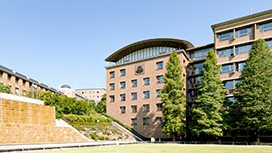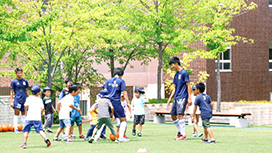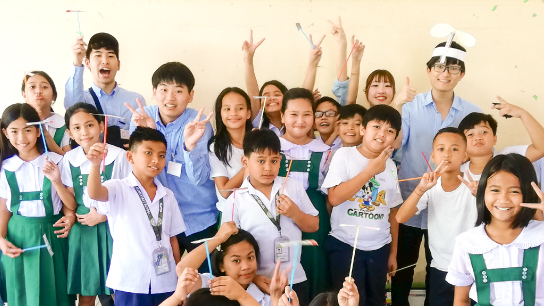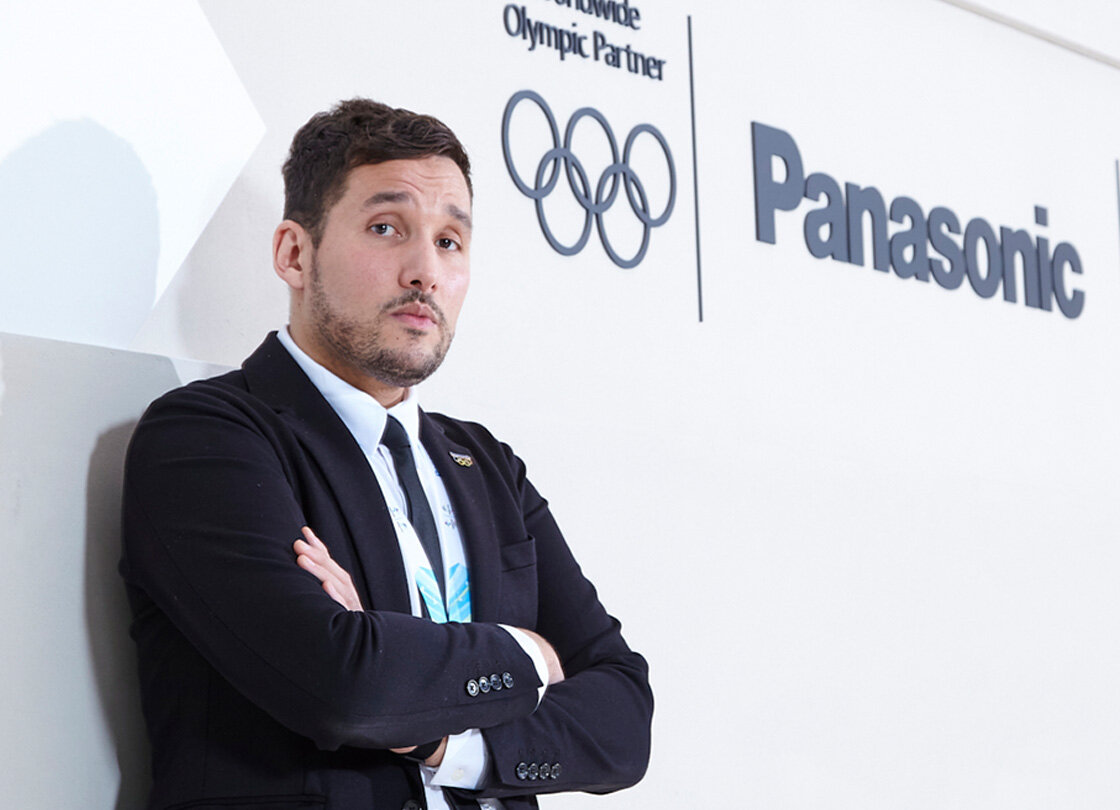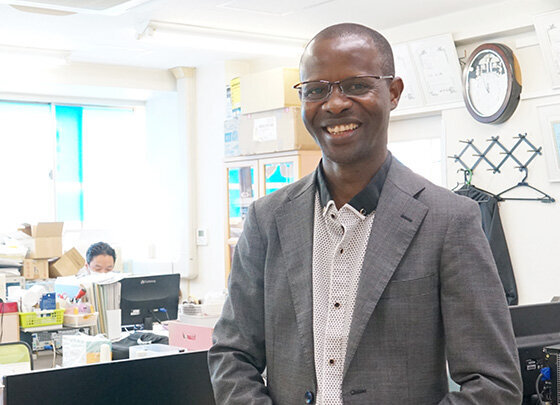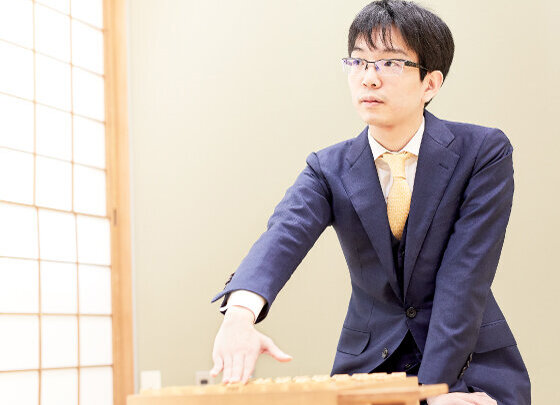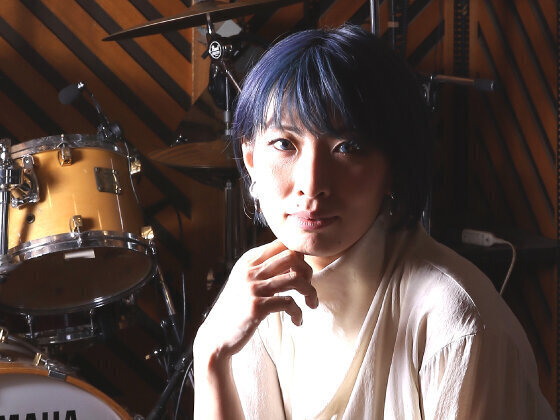KANDAI
HEADLINES
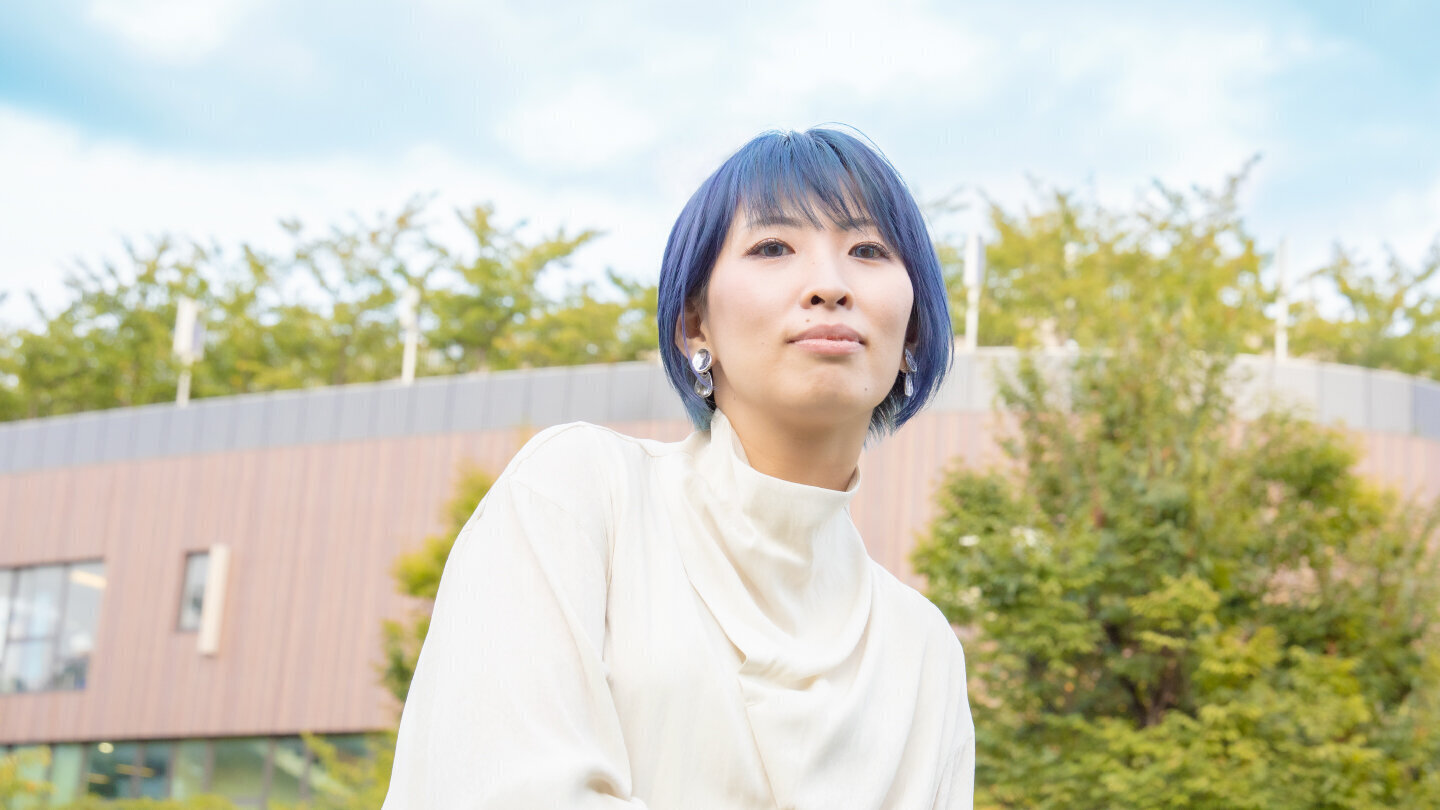
- PERSON
- CULTURE
The path walked by the composer of Gurenge , the Demon Slayer: Kimetsu no Yaiba theme song
How a shy otaku (geek) created music listened to by over one hundred million people
Kayoko Kusano, singer-songwriter, lyricist, and composer (graduated from the Faculty of Sociology in 2006)
After engaging in the energetic activities of Kansai University's Light Music Club, many students enter the music industry after graduation. Kayoko Kusano―the singer-songwriter who composed Gurenge, the theme song of the smash hit anime series Demon Slayer: Kimetsu no Yaiba―is one of them. But what kind of Kansai University student was she? How did Gurenge come to be? We recently had a chance to hear her thoughts on such questions while visiting various locations from her past.
How songs no one had ever even listened to paved the way to the future
Kusano grew up as the eldest daughter of a family well versed in classical music and was immersed in music from an early age. She says that she was only five years old when she composed her first song.
"I got my start writing music when my little sister asked me to write one song for each of her 12 stuffed animals. I had two cassette decks, and I used one to record the melody and the other to record the accompaniment. Although I was still young, I took a pretty serious shot at it. After that, I made a habit of writing music. I was shy when I was little, and the way other kids at school ostracized me as an anime otaku made me lonely, so I would write music that I never let anyone listen to after I came home from school."
Later on, she was drawn to famous artists such as Hitomi Yaida and bird, so she enrolled at Kansai University. There were numerous casual music clubs at the school, but she ended up joining Light Music Club I, which conducted especially disciplined activities.
"All the people I met as a member of Light Music Club I were really unique. They all liked different genres. As a result, the environment made it easy to share the genres we liked as opposed to simply not listening to other genres of music. Thanks to that, I encountered rock, acid jazz, pop music, and other types of music I knew little about, which really expanded my horizons as a musician. Everyone accepted me for who I was as well, so it was a really comfortable environment. That's why almost all my memories of my time at Kansai University are related to the Light Music Club instead of schoolwork. (Laughs) The experiences I had practicing in the studio and performing live at school festivals are truly unforgettable, and I still keep in touch with the friends I made back then."
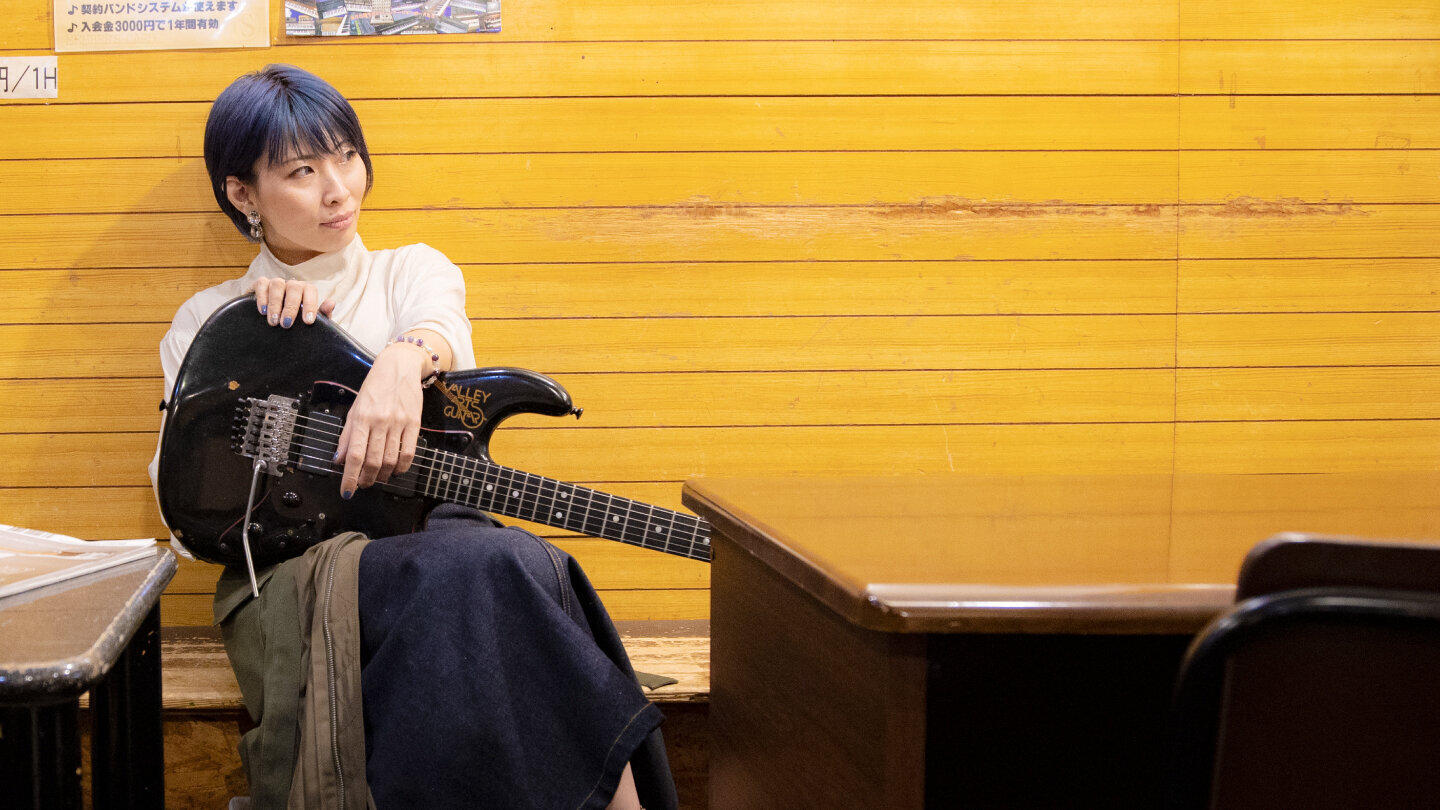
During Kusano's second year, she finally had the opportunity to have a colleague listen to the songs she had written up to that point in her life. That ended up being a major turning point for her.
"Once my colleague finished listening to my songs, he told me that I have talent and that I should definitely audition. That colleague was Yujin Imanishi, who later established the Japanese hand-made audio effects unit brand 'Limestone Audio'. Hearing those words from a colleague I trusted so much was what first made me aware of my talent. I started focusing more intensely on my music, and I wrote more than a hundred songs while enrolled. I believe that Kansai University is where my foundation as an artist was built. And I naturally started thinking that I wanted to make my living as a musician after I graduated."
Kusano's career as a composer started just as she was about to give up
After Kusano graduated, she started working as a singer-songwriter based in Osaka. Although her circle of friends expanded to the point where she recognized everyone at the live music clubs she frequented, she says her activities as a singer-songwriter didn't exactly go well.
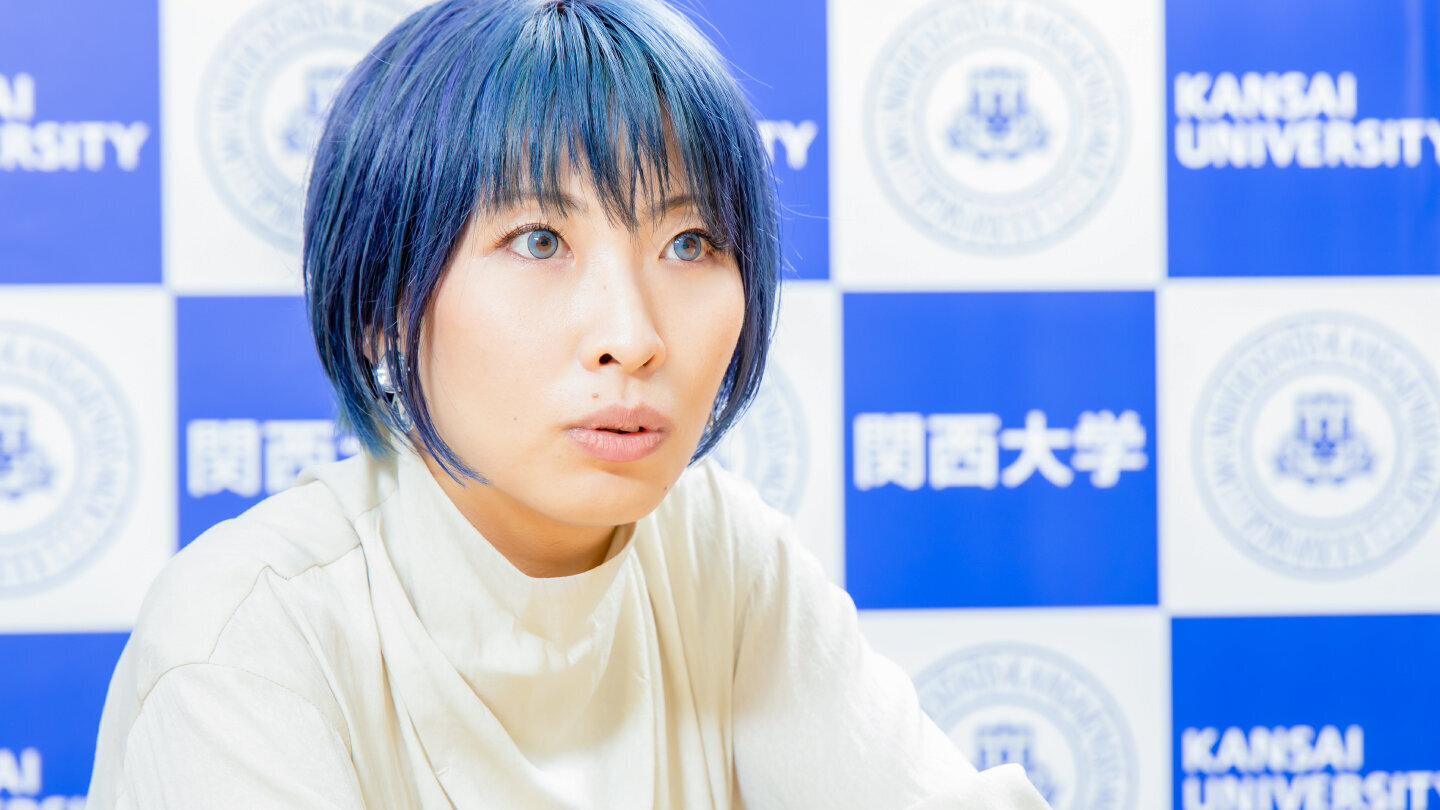
"Music alone wasn't enough for me to get by, so I had to work at a part-time job, too. And then―even though I was barely scraping by―I ended up with a polyp when I was 27 years old, and I temporarily lost the ability to sing. That really bummed me out, and, convinced that I had reached my limit both in terms of my age and physical condition, I just about gave up on music altogether. But the musicians and others around me told me that it would be a waste for someone who could compose songs like me to quit, and they stopped me."
One of them also told Kusano that the anime song singer LiSA was looking for a new composition. And she just so happened to be a major LiSA fan.
"I remember thinking that that was probably going to be my last chance. I made the decision to quit if it didn't go well. With my dreams on the line, I put my entire heart and soul into that composition. The song I wrote, DOCTOR, ended up getting used, and I started receiving work as a composer."
Kusano's entirely new perspective of composing compared to when she worked alone
Kusano, who had never been taught to compose, initially composed songs on her own. As a result, she considers her composition method fairly unusual.
"I've always been an otaku with a love for anime and voice actors. Personality-wise, I tend to really throw myself into my research. When I write music for someone, I start by reading everything I can about the artist who will sing the song, including their entire social media history and interviews given for magazines. Doing that enables me to come up with the right colors, scents, and other aspects of the song idea. I then essentially output that idea as a melody to write the song."
Kusano inputs all the information she can and then releases it in one creative burst. Her work therefore requires an enormous amount of energy, and, after writing a song, she says that she generally doesn't want to move for a week.
"What keeps me going as a songwriter in spite of the hard work is that so many people love the songs I write. Such people include the singers themselves, the teams who create the music with me, and of course the fans. The process brings me a completely different kind of joy than back when I was writing songs alone for my own enjoyment."
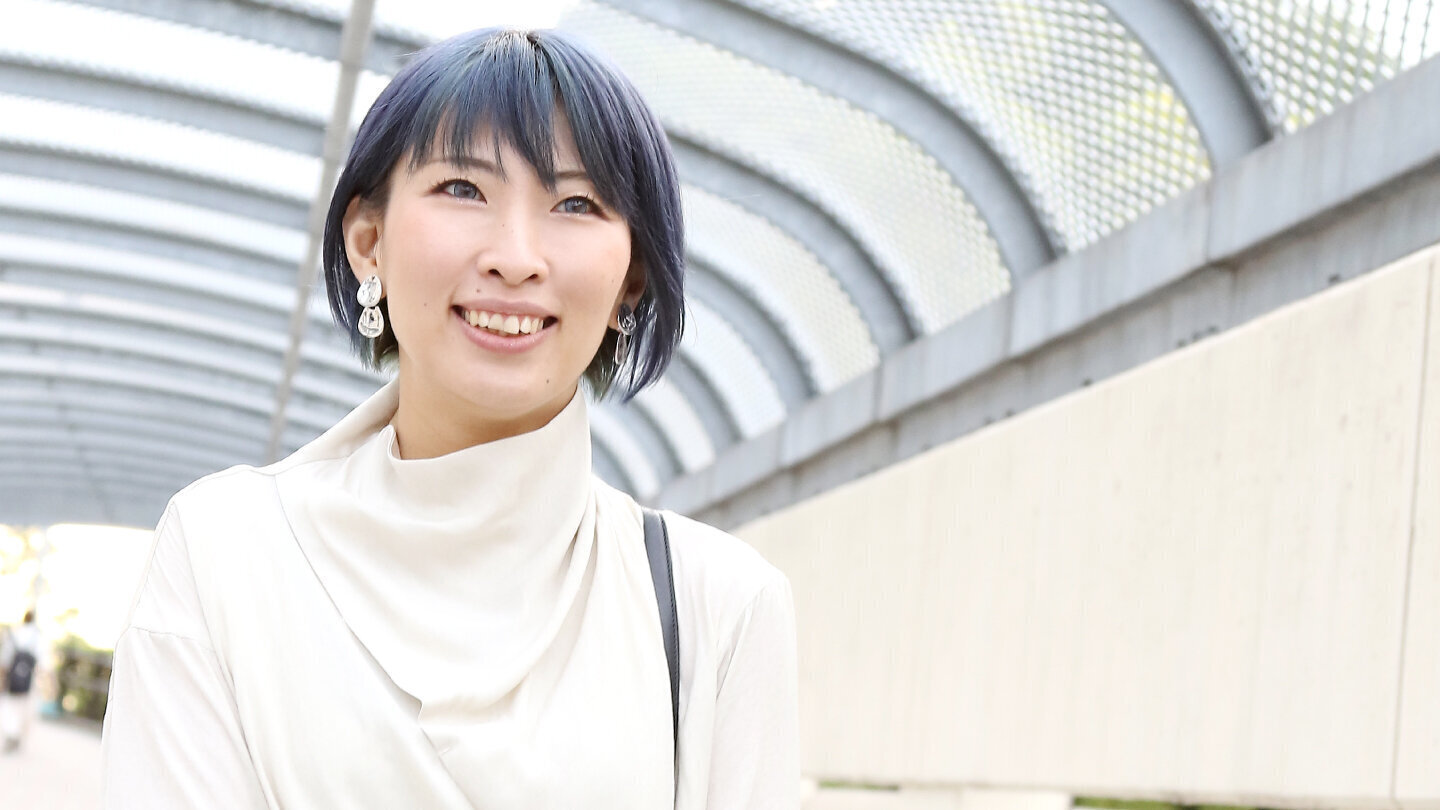
Kusano says that, looking back, the creation of Gurenge was the most involved. Gurenge is the theme song of Demon Slayer: Kimetsu no Yaiba and was even performed on Kohaku Uta Gassen (literally: the NHK Red and White Song Battle). This song is also the first encounter many people have had with Kusano's music.
"Although I'm really proud that so many people have heard of me due to Gurenge, I don't actually consider it my song at all. I mean, I composed the melody, but LiSA wrote the lyrics. The musical structure starting with the second verse was also suggested by LiSA's team. There were also countless other people involved in Gurenge, including the staff of Demon Slayer: Kimetsu no Yaiba as well as the Sony producers. Every last one of them worked equally hard on the song, which is why I think so many people love it."
Gurenge turned out to be a mega hit, getting played over a hundred million times via streaming. Many people have even posted videos of them trying to play or sing the song on video sharing sites.
"Gurenge has a 16-beat tempo instead of the more common 8-beat tempo. Tons of people try to sing it in spite of that, which makes me really happy."
Finding out what you're truly good at shows you the way forward
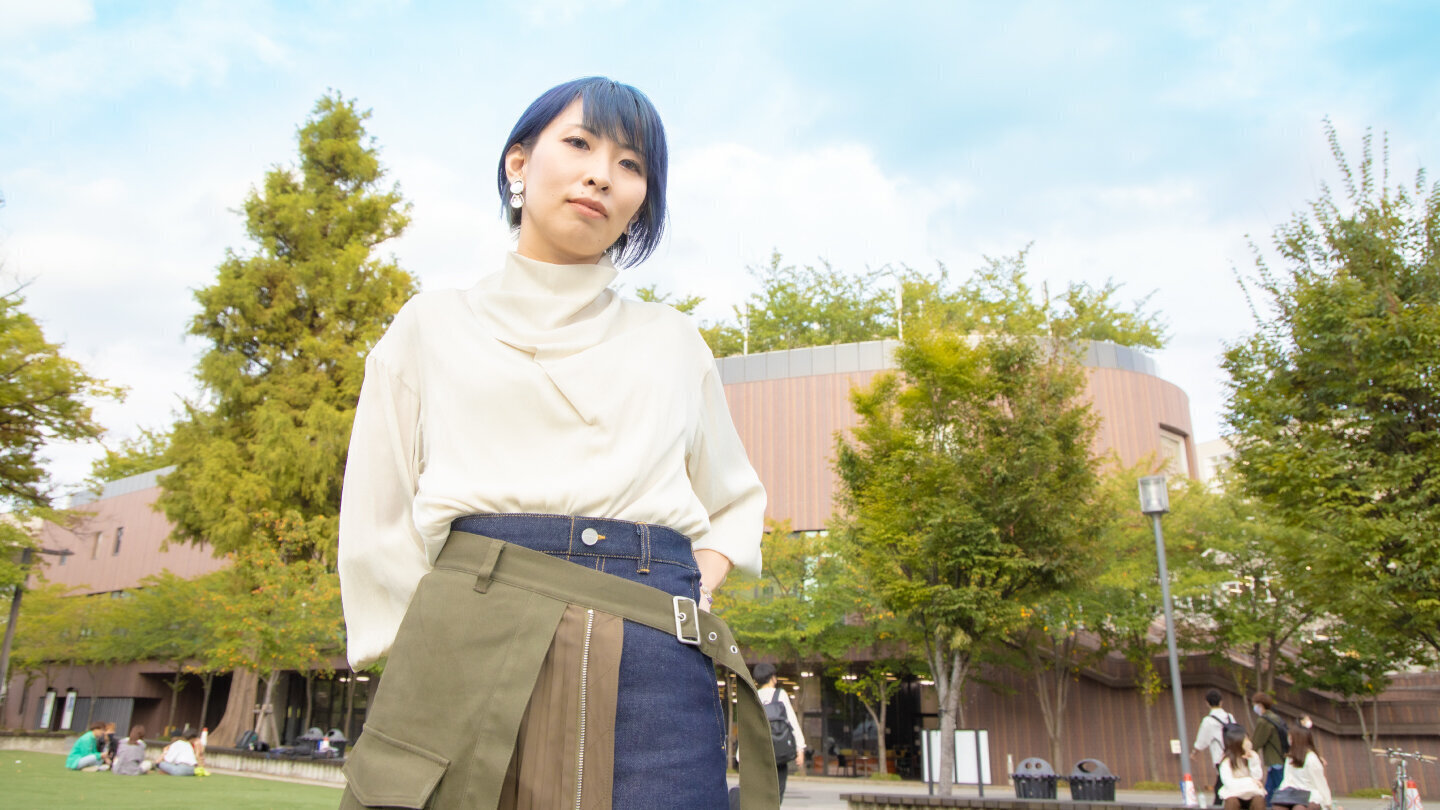
"When I first decided to make my living as a musician, I was fixated on singing my songs myself. Even after DOCTOR was adopted and I started getting work as a composer, I was still clinging to the idea of being a singer. However, thanks to so many people demanding the best of me as a composer, I was finally able to consider the path I was meant to walk. Plus―as I did more and more work as a composer―more people became interested in the songs that I personally sing."
For Kusano, realizing which field she is best at turned out to be a truly valuable asset.
"My advice to people who are struggling to decide on their future or career would be this: if you are fixated on one path and find the going difficult, consider the possibility of finding what you can do without struggling or what you are really good at and choosing that option instead. As a result of my time with Kansai University's Light Music Club, I experienced various encounters, expanding my horizons as a musician and improving my skills as a composer. If you are struggling, try meeting lots of people, experiencing different things, and expanding your horizons as well. You just might figure out what you are supposed to do next, and you might find something you really want to do as a result. Maybe what you want to do and what you can do are two different things. But I don't think that means you'll lose the ability to do what you want to."
To conclude, Kusano looked back on her life until now and talked about her aspirations.
"Once upon a time, I was a lonely anime otaku ostracized by the other kids and spent my time sadly writing music by myself, but I ended up writing an anime song that has been listened to by over a hundred million people. What could possibly bring a person more joy than this? I hope to keep putting everything I have into my creative pursuits as both a composer and singer. I want to keep working on music until the day I die. That's my goal."
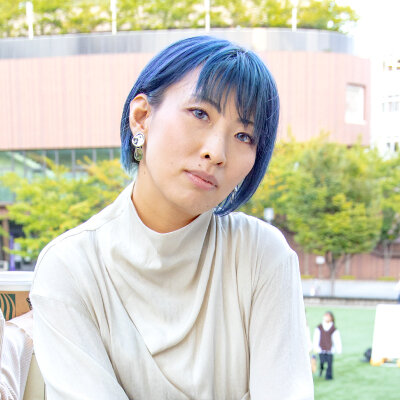
- Kayoko Kusano, singer-songwriter, lyricist, and composer (graduated from the Faculty of Sociology in 2006)
- Kayoko Kusano works with Sony Music Publishing and CAT entertainment. She is known for her deeply emotional lyrics―which seem almost to gently envelop the listener―and her exceptionally unique melodic sense. She writes music for LiSA and numerous other artists as well as anime series.
Related articles
- TOP
- About Kansai University
- Public Relations
- List of Headlines
- Headline Article

